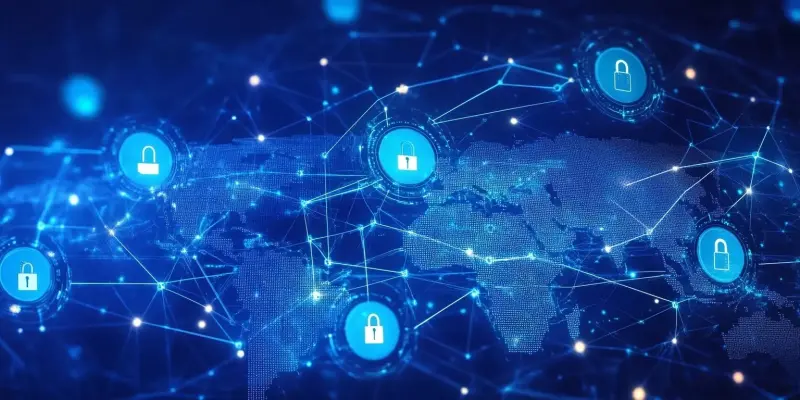Multi-factor authentication (MFA) has long been considered a cornerstone of secure account management, providing an additional layer of protection against unauthorized access attempts. Cybercriminals continuously seek ways to overcome these defenses, and recent developments have shown that MFA is not immune to their growing expertise. The Tycoon 2FA phishing platform has emerged as a particularly concerning tool in this regard, causing significant alarm among cybersecurity experts and businesses alike. This platform allows cybercriminals to bypass MFA controls and gain unauthorized access to both personal and corporate accounts, posing a severe threat to widely-used services like Gmail and Microsoft 365.
How Tycoon 2FA Compromises MFA
The primary method employed by Tycoon 2FA is known as adversary-in-the-middle (AiTM) phishing. This sophisticated technique involves intercepting authentication cookies and session tokens, enabling hackers to eavesdrop on login sessions even when MFA is enabled. This form of attack typically begins with victims receiving a seemingly benign email, QR code, or link that redirects them to a fake login page designed to closely resemble legitimate Gmail or Microsoft 365 portals. Advanced anti-bot filters are then deployed to ensure only real users, and not security scanners, interact with these fraudulent sites. When users enter their login credentials and MFA codes into these fake portals, the attackers capture and intercept the information, gaining unauthorized access to the victims’ accounts.
One of the reasons Tycoon 2FA is so challenging to detect lies in its advanced stealth features. The most recent version of the platform, launched in 2024, comes equipped with delayed execution of malicious scripts to avoid triggering antivirus software, dynamic phishing URLs unique to each victim, and traffic filtering methods that prevent security tools from flagging suspicious activity. Researchers have identified more than 1,100 phishing domains associated with Tycoon 2FA, and investigations into blockchain transactions have revealed that the group has amassed nearly $400,000 in cryptocurrency from these attacks. This level of sophistication and financial gain highlights the growing capabilities and motivations of cybercriminals targeting MFA-protected accounts.
The Growing Need for Enhanced Security Measures
Tycoon 2FA is not an isolated threat; it is just one of many phishing kits designed to undermine MFA protections. Other platforms, such as LabHost, Greatness, and Robin Banks, have gained popularity among cybercriminals for their ability to scale attacks and exploit MFA vulnerabilities. These developments underscore the need for organizations to continuously improve their security measures. Companies cannot rely on static defenses but must evolve alongside the rapidly advancing tactics of cybercriminals. As businesses strengthen their security practices, hackers innovate, developing ever more advanced tools designed to exploit human errors and deficiencies in existing security protocols.
Given the sophisticated techniques employed by Tycoon 2FA and other similar platforms, experts recommend adopting a multi-layered defense strategy to protect against such attacks. A key component of this strategy involves educating employees and users about recognizing suspicious login prompts, phishing attempts, and other common tactics used by cybercriminals. Awareness training can significantly reduce the likelihood of users falling victim to these deceptions. Additionally, organizations should maintain robust monitoring of authentication logs for unusual activity and implement physical security keys (such as FIDO tokens) rather than relying solely on SMS or app-based MFA. Regularly updating security software and implementing adaptive authentication methods can further enhance an organization’s defenses by detecting high-risk login attempts more effectively.
Vigilance and Adaptation: The Way Forward
Multi-factor authentication (MFA) has long been a foundational element in managing account security, adding an extra layer of defense against unauthorized access. Despite its importance, cybercriminals continuously find ways to bypass these barriers, and recent advancements highlight that MFA is not completely foolproof. One such concerning development is the emergence of the Tycoon 2FA phishing platform, which is causing alarm among cybersecurity professionals and businesses. This platform enables cybercriminals to circumvent MFA protections, allowing them to gain unauthorized access to personal and corporate accounts. Consequently, this poses a significant threat to popular services such as Gmail and Microsoft 365. As cybercrime evolves, the challenge for cybersecurity experts is to adapt and reinforce security measures to stay ahead of these sophisticated tactics. In conclusion, while MFA remains a key component of account security, it is more crucial than ever to continue developing advanced security measures to counteract the ever-growing sophistication of cyber threats.

